The latest DeSantis attack on education is part of a broader attack on professional competence
Imposing partisan criteria on what students are taught, how patients are treated, and how the media reports
Imagine you are a Governor of a state. And a lobbyist tells you about an industry that generates an enormous number of middle-class jobs that cannot be outsourced, is a vehicle for class mobility, and throws off a lot of economic benefits for your state economy. This industry is the world leader, selling tens of billions of dollars of services to non-US citizens.
If this was most industries, you would rush to shower it with new subsidies. Protect it in any way you can. Praise its leaders and employees. And yes, higher education does benefit from public support, though less and less over time.
But for higher education in red states, politicians addicted to culture war frames think they know better about the industry, vilify and distrust the employees, and so have decided to take it over and run it themselves. It is no exaggeration to say that this is happening in Florida, with a new bill that would gut the autonomy of professionals working in public colleges and universities.
If you don’t care about free speech, what about competence?
We have talked about higher education through the lens of free speech over the last few years. And I am increasingly losing confidence that this is helpful. For many, that discussion served its purpose, which was to establish a moral panic about unruly students and intolerant professors. This narrative paved the way for the takeover we are seeing now, where politicians like Ron DeSantis are pushing some truly radical ideas about education even as they present themselves as the adults in the room.
The bizarre indifference of much of the campus speech brigade to what is happening can be best summed up by recent columns by Pamela Paul of the New York Times. In the first, she focused on a list of words that Stanford IT staff and a pro-diversity group encouraged others not to use. The list was bizarre, roundly mocked, and never represented campus policy. The fact that Stanford clarified this point was treated as a victory for free speech worthy of a New York Times column. The very next week, Paul met her critics who said she has been ignoring the attacks on speech in Florida by writing what amounted to press release for the Florida Governor.

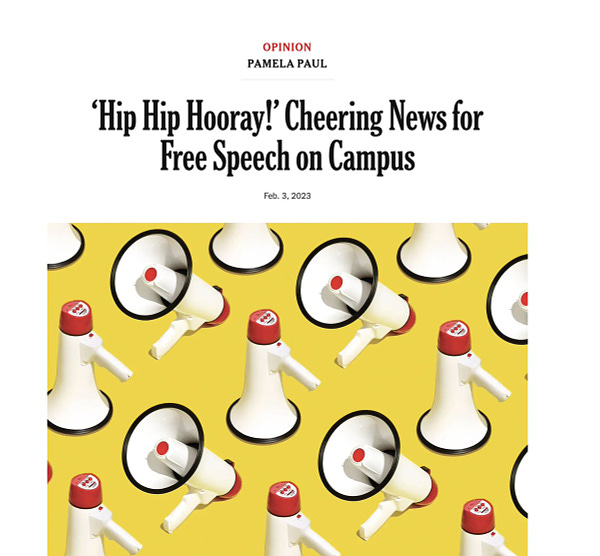
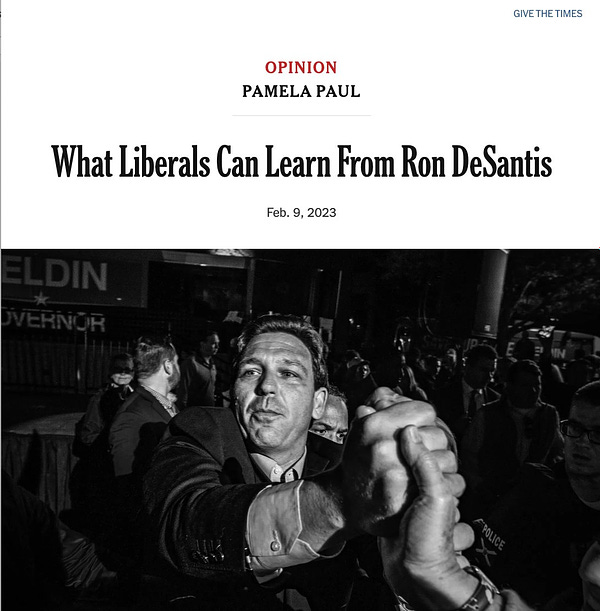
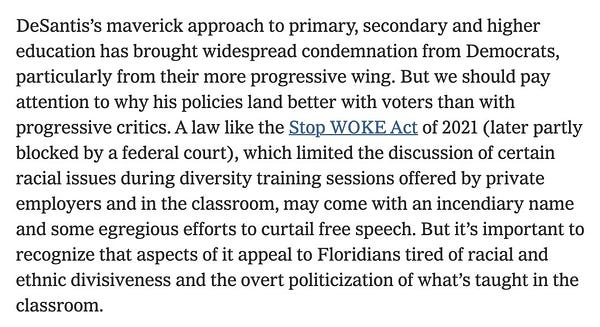
I could pick other examples. But at some point it is pointless to contrast bold statements about the catastrophic threats to speech by, for example, the censoring of the rapping librarian, and indifference to actual state censorship. Pointing out the hypocrisies of the fair-weather free speech champions increasingly feels like a fools errand. It assumes some measure of good faith interest in speech rights at a broad level that just isn’t there.
So now I want to make the more banal argument that US higher education institutions have real value, and are better run by professionals than by politicians. The professionals care about the quality of services they provide. There might be cases of waste of administrative bloat, but they are broadly responsive to clients and stakeholders. By contrast, the political takeover of higher ed is not motivated by fiscal responsibility, but by a desire to impose ideological litmus tests on campus, regardless of the the cost to the institution or to students. The latter aspects of my argument are demonstrated, once more, by the latest bills on higher education coming out of Florida.
Proposed Florida legislation would prioritize ideology over educational competence
The DeSantis administration has outlined a broad agenda to politicize higher education, beyond what it has already done, which is a lot: placing highly ideological political appointees on education boards, pursuing unconstitutional constraints on speech via the Stop WOKE bill, targeting historically marginalized groups, seeking to rewrite Black history, and directly taking over specific institutions like New College to subvert their mission and traditions.
The agenda continues with new legislation in both the Senate and House of the Florida legislature. House Bill 999 fits with the proposed DeSantis agenda and is truly radical in its scope. It will significantly devalue educational credentials from Florida, especially for students hoping to find jobs in workplaces that value employees who can function in diverse environments, or those seeking additional educational training from skeptical institutions outside of Florida. A “Florida degree” will become a punchline akin to “Florida man.”
Banning gender studies
First, the bill adds gender studies to the topic of forbidden topics in Florida higher education. Remember when the Critical Race Theory was about protecting children from challenging college material? In Florida, college students will be so infantilized that they will not be allowed to be presented with critical perspectives on human identity about race or gender now.
The bill therefore expands censorship of ideas in higher education beyond the Stop Woke Act — even after courts decreed such censorship to be unconstitutional. It follows in the footsteps of other authoritarians who ban discussion of dissenting idea that challenges their regime, most obviously Victor Orban in Hungary. The obsession with Orban is one of the great reveals about the American far-right. They don’t actually want American greatness. They will settle for a third-tier European power if they get to run it.
Terrified of theory
The contradiction between competent educational outcomes and the DeSantis agenda is also reflected in the bill’s prohibition of “unproven, theoretical, or exploratory content” in general education courses. This reflects a bizarre and unscientific stance that there are two classes of knowledge that must be kept separate — unproven theory and settled factual claims — when in reality science is about the interplay between the two. Theory broadens our capacity to understand the world, and subjects what we think we know to closer scrutiny. This point is generally uncontroversial in science.
Some broad theoretical frameworks cannot be said to be definitively proven — such as string theory, rational choice theory, the Big Bang, and, uh, macroeconomics — but still have value, and encourage the development of more empirical knowledge. And how can general education coursework convey “values necessary to preserve the constitutional republic” if it excludes political philosophy, an essential source of knowledge for the founders?
But of course, these are not the theories that Florida legislators are thinking about. They want the right to selectively censor any theories that offends contemporary conservative values, closing the range of academic topics discussed in the classroom. As free speech group Fire says: “A bill so vague that it allows officials the discretion to declare that professors cannot discuss new theories and ideas in a particular public university class should be rejected, flat out.” This vagueness, of course, is the point, creating an atmosphere where the targets of state opprobrium know that there are no clear lines to stay on the right side of, broadening the zone of self-censorship.
Prioritizing political ideology over expertise in hiring and tenure decisions
The DeSantis bill proudly announces that it will ban discrimination based on the use of diversity statements, or other measures of political identity. You might or might not believe that requiring DEI statements for job candidates is, in fact, a form of discrimination. But look more closely and it is clear that one form of discrimination is being established, which is the capacity of conservative political appointees to make personnel decisions. Under the bill, such appointee may set up a process to revoke tenure status. at any time.
This is not a practical higher education policy, solving a higher education problem. As Keith Whittington points out, professors in Florida with tenure can be fired for cause. It is a political solution to the perceived problem that political appointees lack sufficient control over career professionals. The nearest parallel comes from outside of higher education: Trump’s effort to remove job protections from career employees in the federal government, thereby giving political appointees the capacity to fire them. Both are motivated by a desire to empower partisans over professionals.
Even more disturbing, the bill moves the critical decisions of who to hire away from faculty to political appointees. University Presidents (who are increasingly political hacks in Florida) make these decisions, would not be required to listen to faculty, and the political appointees on Board have the final say.
It is hard to overstate how damaging such provisions would be. It is the end of faculty governance on the crucial decision on what it means to be a professor. As with any politicized organization, it extends an invitation to cronyism and mediocrity. In this context, how many faculty will share expertise in ways that contradicts or displeases the governing party?
Of course, the political appointees on the board will not intervene in every hiring decision. They lack the capacity and expertise to do so. Instead, they will selectively intervene to block faculty whose research themes or public statements is at odds with their interests. This environment creates a chilling effect where such power will not need to be used frequently, as we have already seen with the implementation of the Stop WOKE Act. If you are a scholar who studies race, how likely are you to apply to a Florida institution? How many hiring committees will decide there is no point in interviewing such candidates, knowing that their Deans will be reluctant to recommend them for hiring? Which faculty will embark on research on these topics, or speak out about the ever-shrinking domain of academic freedom, knowing that the targets of these criticism can fire them? Administrators in Florida have, again and again, failed to defend their institutions. As they are even more under the thumb of political appointees, they will be even less willing to push back, knowing that they can expect budget cuts, firing or other forms of retaliation.
These politicized personnel decisions will not be based on evaluation of the quality of research, which is how faculty evaluate each other hiring or awarding tenure, which involve extensive review processes. Such faculty-led processes may be imperfect, but the incentivize merit via measures of productivity and quality (peer-reviewed publications, research grants, real-world impact, teaching evaluations) and do not, contrary to what you keep being told, center on ideological considerations. The focus on ideology is what the DeSantis appointees are bringing.
A broader pattern of disempowering professionals to impose state values
The undermining of professional autonomy goes beyond higher education. Indeed, it is a common thread in how DeSantis has used power.
It extends most obviously to K-12 education, where DeSantis and plenty of others have already passed laws to police what is said in the classroom or read in the library. A teacher recently posted images of empty bookshelves, the predictable outcome of DeSantis policies that schools to review every book. DeSantis decried the video as a hoax. And then teacher was fired. How many more educational professionals will speak up now, even when they see policies that are hurting kids?


The DeSantis claim that the press is pushing “hoaxes” to discredit him also explains his desire to limit the powers of reporters to do their job, rolling back press freedoms, and making them more liable to defamation suits. A bill was introduced by Rep. Alex Andrade (who also introduced the higher educational House Bill 999, and described working with the DeSantis on legislative priorities) that seeks to overturn the 1964 New York Times vs. Sullivan Supreme Court decision. That decision granted broad press protections against libel claims in the context of government officials in Alabama seeking to curb press criticism of their treatment of civil rights actors. In other words, DeSantis wants to kill a standard that originated to protect the press against state actors seeking to silence critical views related to race. Very fitting.
The disempowering of professionals also extends to health care. Abortion restrictions signed by DeSantis are forcing women to carry to full term babies who will die when they are born. Even though exceptions for such cases are theoretically in place, doctors are behaving like fearful higher education administrators. “Erring on the side of caution” which means shortchanging a real person, in this case the patient. Beyond abortion, threats to public health professionals have accelerated when the pandemic became a political football, and DeSantis has led the charge.
Professionals in education, health care, and the media have some incentives to be responsive to their clients. In some cases they may err, or seek to exploit the public, and the government has a critical role in regulating them. Finding the right balance between legitimate democratic control and professional guidance is a never-ending job.
The DeSantis approach does not try to find a balance, but instead empowers ideologues to second-guess the professionals on matters of professional expertise, to scare them into using ideological criteria on what to teach in the classroom, how to treat a patient, or report the news. Professional competence provides a justification for autonomy, a means of limiting state control. The erosion of this autonomy has real costs. It reduces sources of dissent when expert knowledge contradicts the dictates of the ruling party, and undermines the quality of services for the public. This is why would-be authoritarians seek to stifle and control such autonomy.
We live in an era where expertise is a subject of disdain, claimed to represent a badge of elitism. We should worry about this, especially when the claims are made by powerful political actors, funded by a billionaire class, who promise that they have the real interests of the public at heart. Because, contrary to what you might hear, we are not actually better off or any freer when the state seeks to disempower professionals when it comes to education, health and the news.
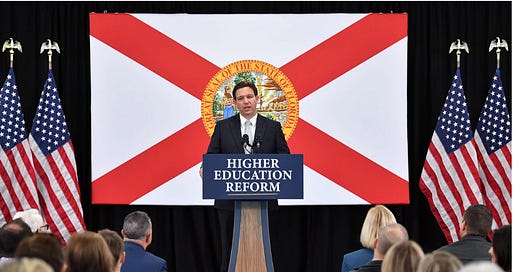



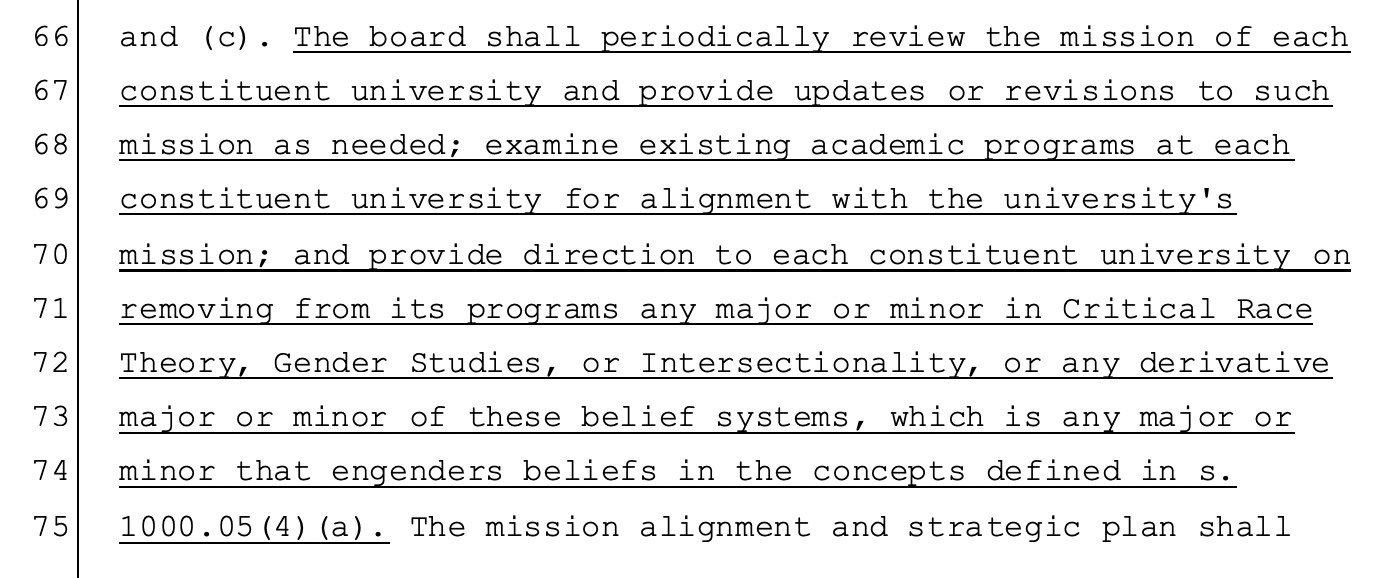
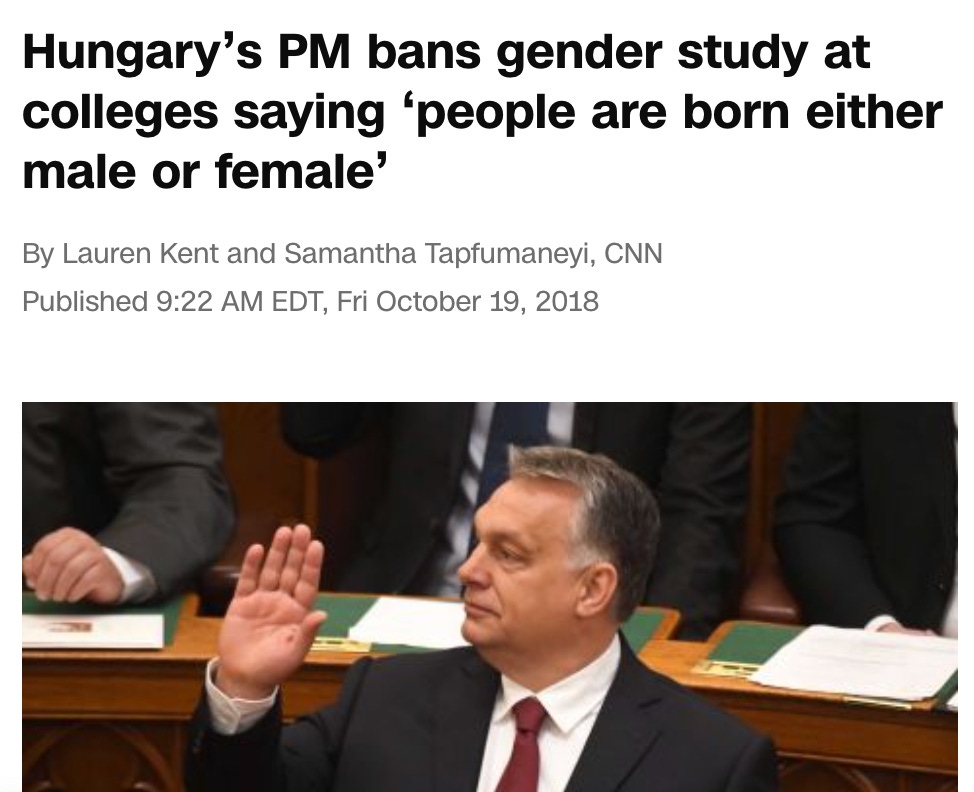
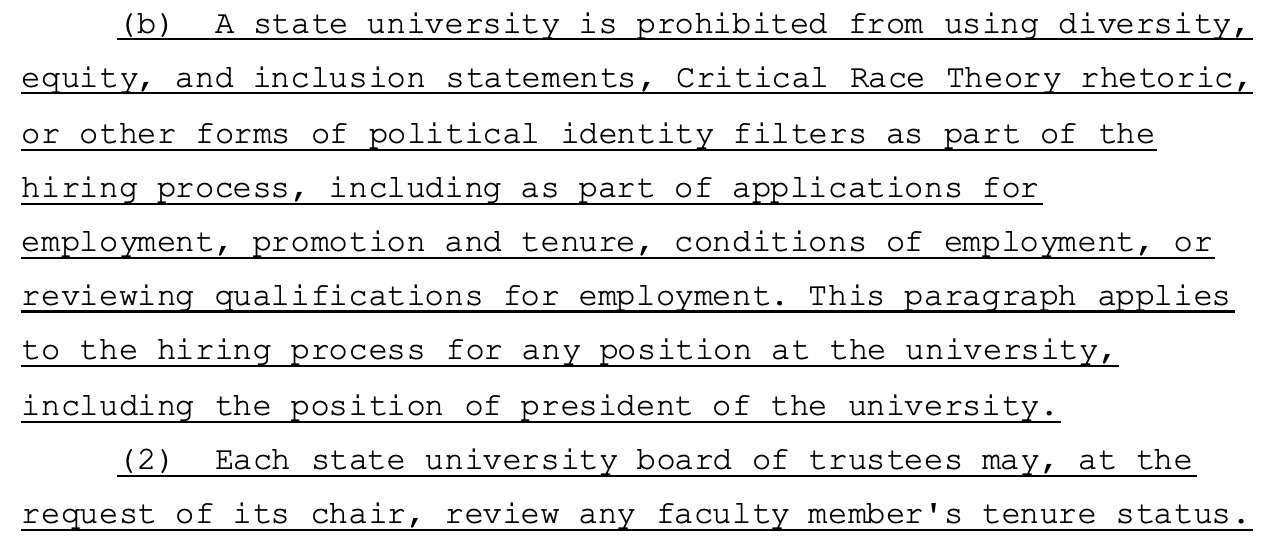
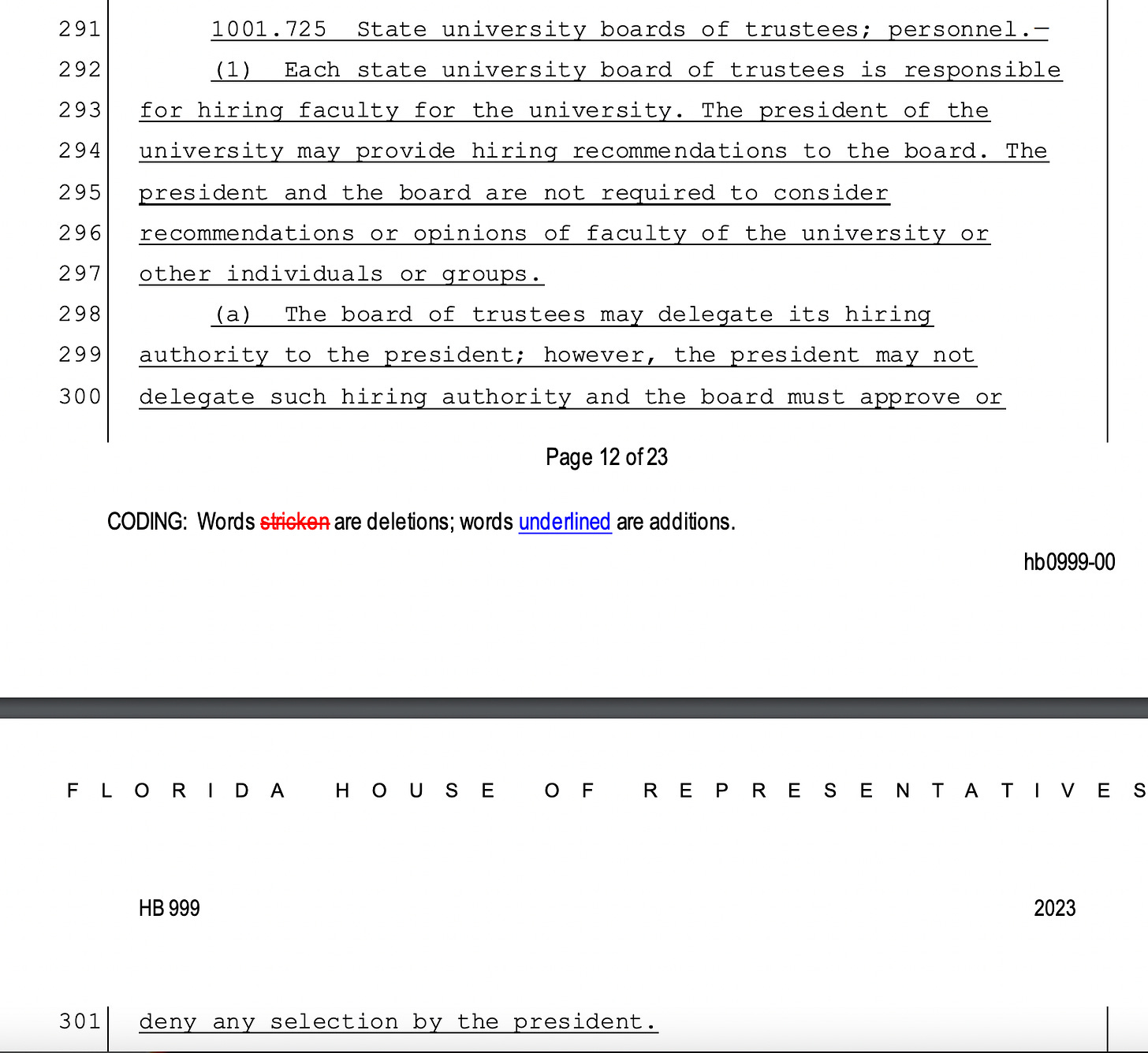
Thanks so much - appreciate the support!